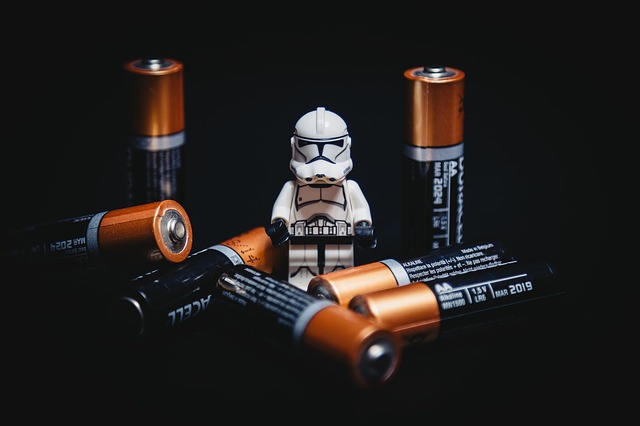What is the life of a lithium-ion battery?
Aug 06, 2019 Pageview:1311
Lithium-ion batteries (LIB) are the newest battery technology in the renewable energy industry. They were developed in 1991 and have since been improved upon to make them more useful and long-lasting.
They are the most powerful batteries and most popular with most electronic devices. You will find them in your laptop, Smartphone, and other portable electronic devices.
However, LIB batteries do not last forever. They last longer, but over time, they will naturally lose some capacity because of the charge/recharge cycling. ?These are the same characteristics you will find in all batteries contained in devices made by Garmin containing Li-ion batteries.
In this guide, we are going to look at how long you should expect your battery to serve you without any problems. We are going to focus on rechargeable fitness device and other electronic devices.
What is the normal life of lithium-ion batteries?
One of the reasons lithium-based batteries are taking the lead in nickel-cadmium batteries is their stability. Apart from that, they have a very low maintenance nature.
But what makes them even more popular is their self-discharge rate. Compared to a nickel?battery, LIB produces a discharge rate of more than half. And when the cells are exposed, there?is little to no harm.
Under normal circumstances, lithium-ion batteries should give you up to 3000 charges and 5000 discharge. But this depends on how the batteries are used. They can be much lower.
A good lithium-ion battery should still give you up to 80% charge after a few years of use. Recent research has revealed that the future of batteries relies solely on lithium.
The technology has not fully matured, and there is room for more developments. Most of the improvements being witnessed today focus mostly on longevity and safety. At the moment, the capacity is increasing amazingly.
What is the life expectancy of a lithium-ion battery?
Each lithium battery system has unique needs. The device you use it with and how you use it determines how long the battery lasts.
LIB batteries work on ion movement. The constant shifting of these ions between the anode and the cathode ensures proper flow of current.
Theoretically, this movement should be sustainable forever. There should never be any interruption, and the battery can work as long as the user expects it to.
However, different factors, among them cycling, elevated temperatures, and aging, reduce their performance over time.
Manufacturers always advise on the possible life expectancy of the batteries. Most give consumer products and estimation of 300 and 500 discharge/charge cycles.
You cannot, however, rely on counting life cycles to conclude how long it will serve you. Sometimes discharge varies, and we cannot say for sure what a full cycle has. When using the life cycle, some manufacturers use a date stamp for replacement. But this does not follow usage, which means the battery may fail before the date specified, or go beyond it.
Battery performance is measured in capacity.?This is the leading health indicator where other factors are not considered. Apart from that, internal resistance and self-discharge play a role, but they cannot be used to determine the end of battery life. Modern Li-ion batteries are much more advanced with better features reducing these factors.
There have been several types of research to determine the life expectancy of LIBs over the years. In one instance, 15000mAh cells for mobile phones were charged to 4.2V/cell before being allowed to saturate to 0.05C. After a while, they were discharged at 1,500mA to 3.0V/cell.
It was discovered that the expected capacity loss was uniform even when the cycle was repeated. They delivered over 250 cycles, and their performance did not disappoint.
In conclusion, a Li-Ion battery in good condition should not give you less than 200 cycles, even in the worst condition. You should not have to spend money on batteries where you could use for other things.
Consider how long the battery has been on the shelf when buying. Generally, Li-ion batteries can only last for about three years, regardless of whether they are in use or not. Modern improvements have enabled them to last much longer though.
How can I prolong lithium-ion battery life?
Before getting into how to prolong your Li-ion battery, it is important first to learn what makes the batteries to lose capacity. Normally, batteries should give 100% capacity in the first year of service. But it is common to see less than this with shelf life being one of the contributing factors. As a user, you can check and complain in such cases.
Performance acceptance factors may be another issue. It is much better when you don’t have to match single cells in mobile phones and tablets.
The depth of discharge (DoD) is another great threat to battery life. It is just the same way when mechanical devices wear faster due to heavy use. Your batteries will last much longer if you expose them to low discharge. As much as possible, do not allow your batteries to discharge fully.
Other batteries may not be great for partial discharges, but Li-ion batteries don’t have a memory and do not require a periodic full discharge cycle to prolong them.
Now that this is clear, here is how to care for your battery:
Temperature
Lithium-based batteries, just like many other types, do not like exposure to high temperatures. Ensure you don’t store them in a too hot or cold place. Consider temperature highs of 68 degrees F and below but not below room temperature.
Moisture
Lithium batteries and water do not mix. They can form highly flammable lithium hydroxide and hydrogen. Just keep them dry at all times.
Charge/discharge
Do not allow your batteries to discharge completely. This will extend their lifespan. And if you are storing them, discharge them to about 50%.
Charging your batteries to a wrong voltage can reduce its life. Lithium-ion batteries come with fast-recharging capability, so let the process flow naturally.
Conclusion
Even though not all batteries are created equally, you can manage them in a way that gives you more usage. Consider the tips shared above and you won’t have to visit a dealer now and then.
- Prev Article: How do you know about ultra battery VS lithium ion?
- Next Article: How Much Do You Know About 18650 Battery Wraps
Leave Message
Hottest Categories
-
Hottest Industry News
-
Latest Industry News











